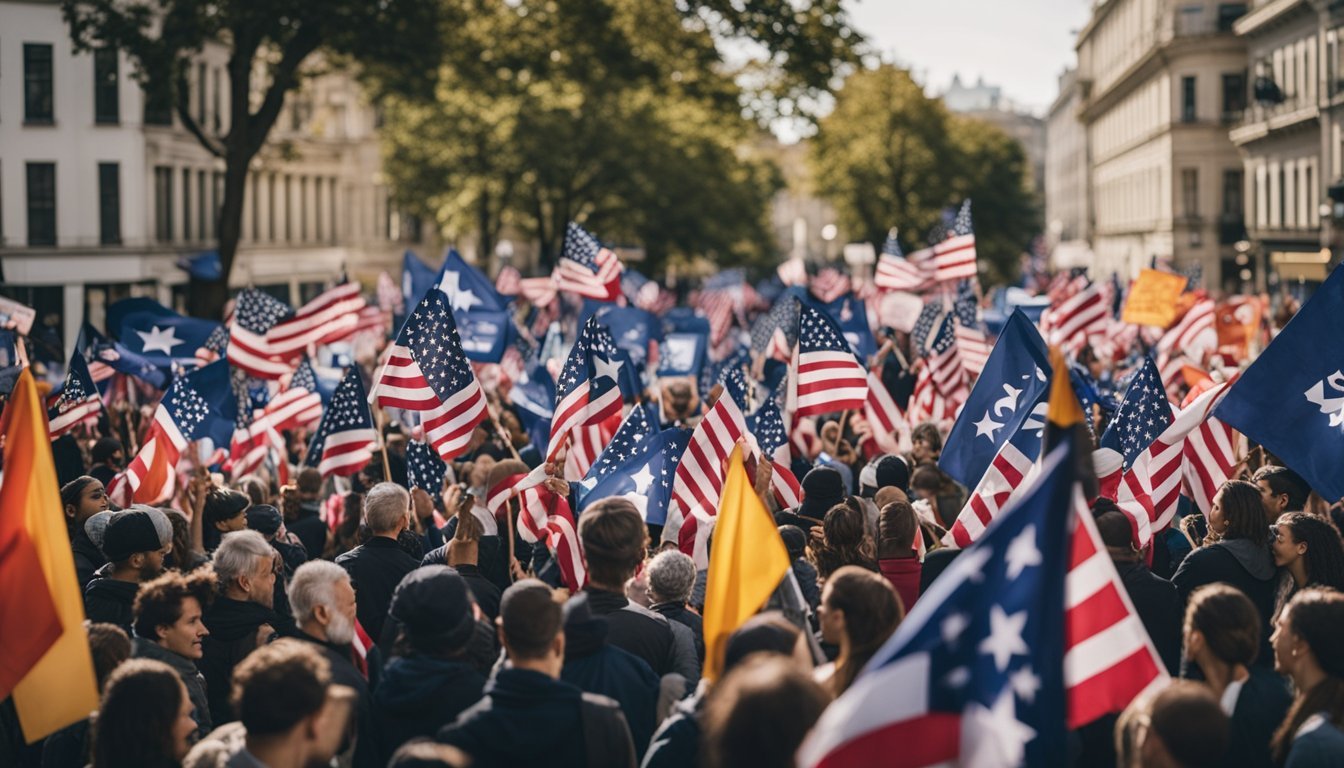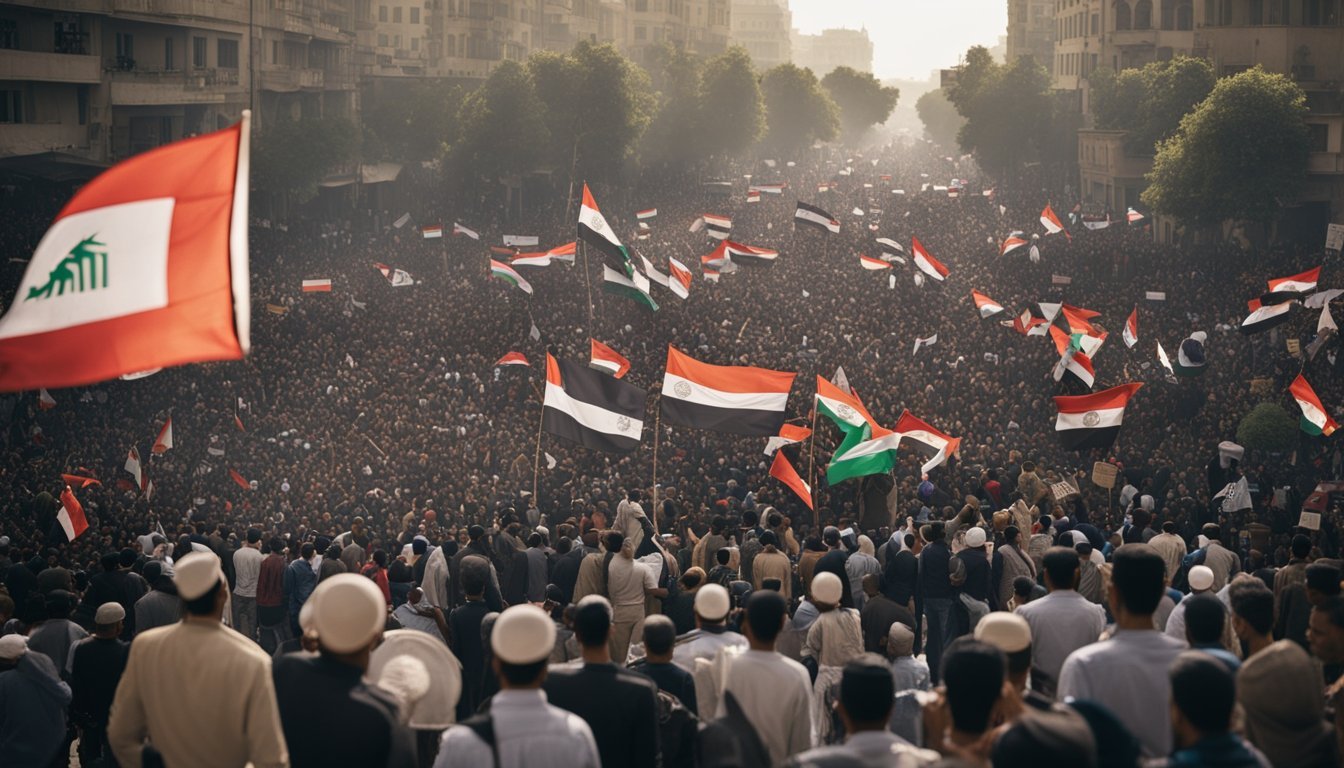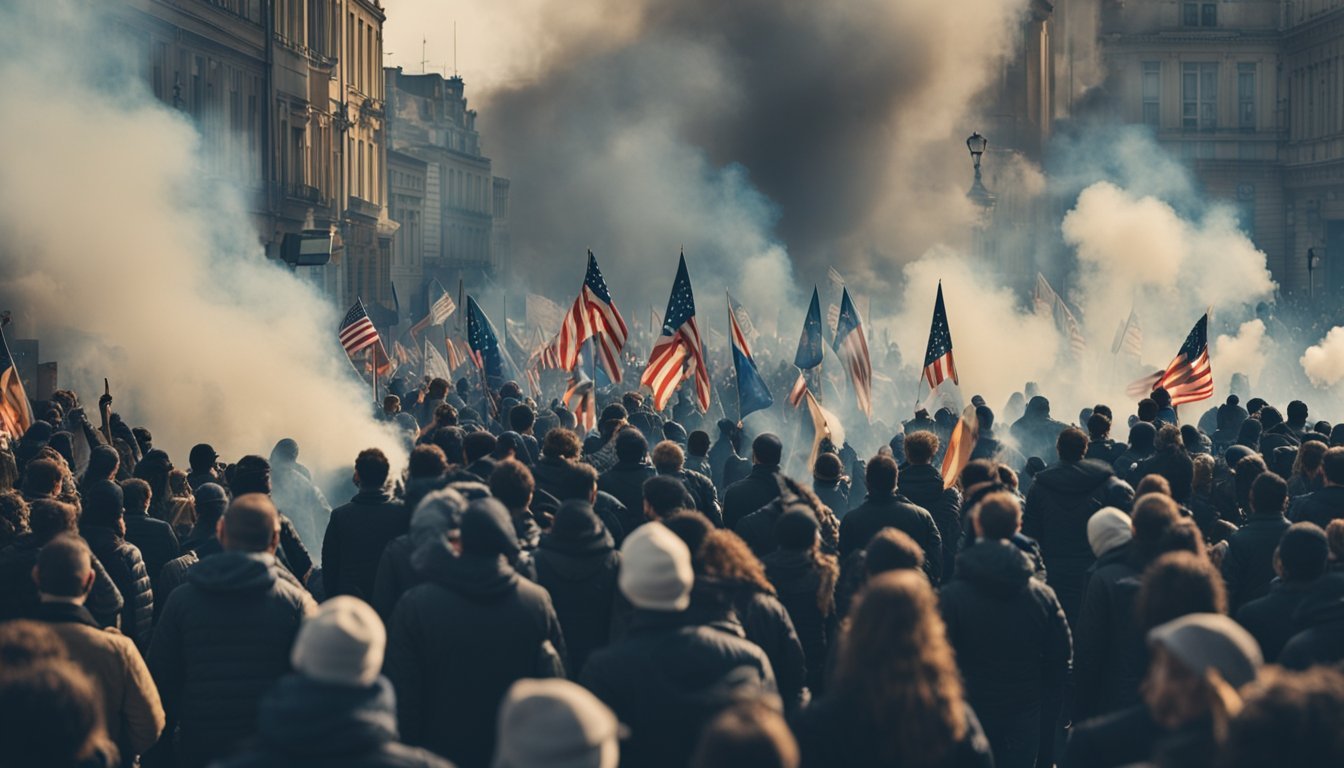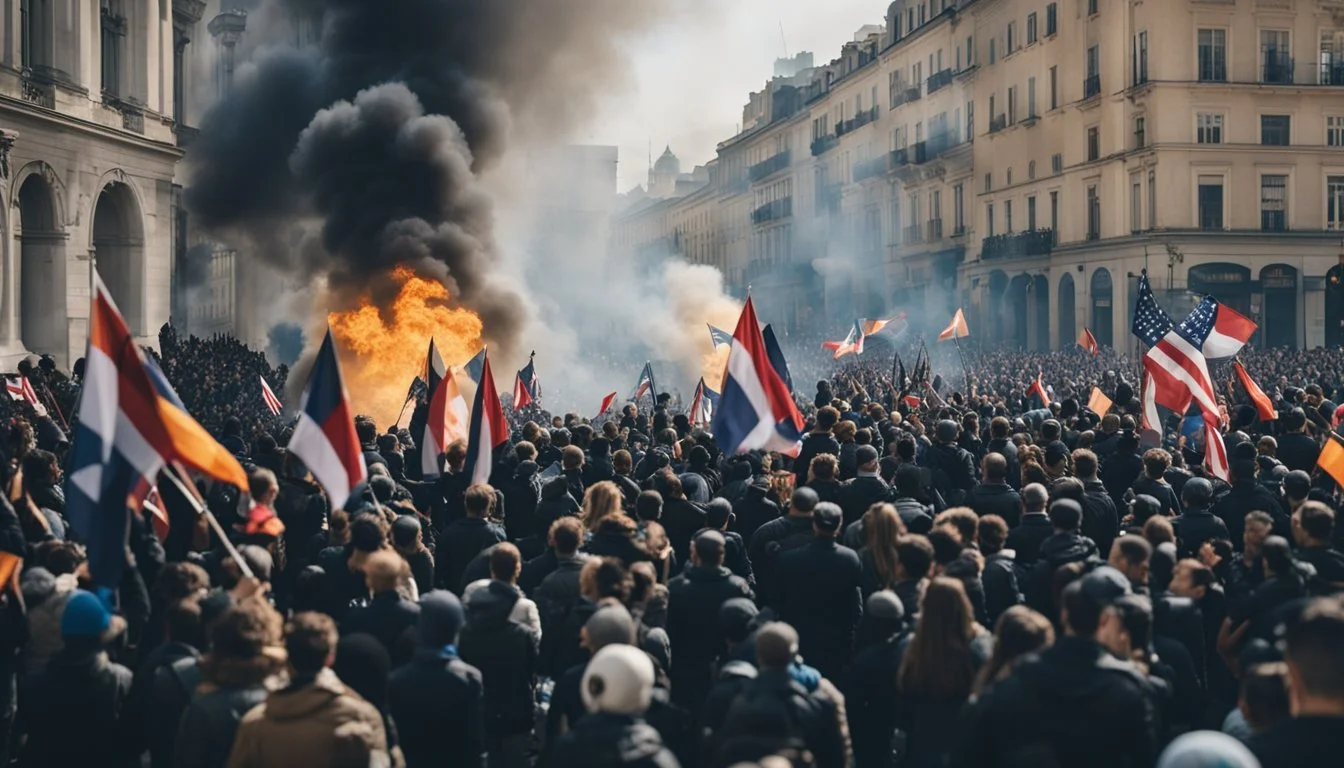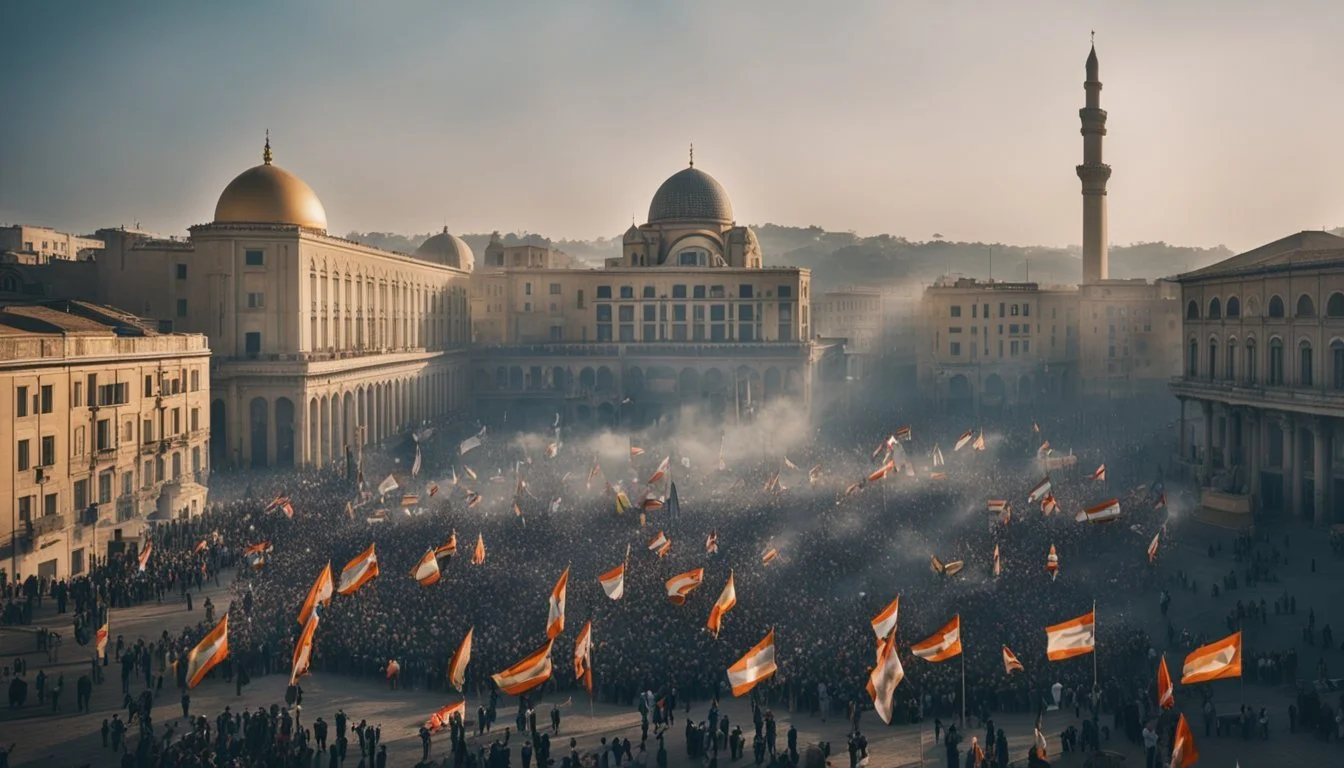10 Spring Awakening Documentaries About the Arab Spring
Essential Viewing for Understanding Middle East Uprisings
The Arab Spring of 2010-2011 marked a pivotal moment in Middle Eastern history, as citizens across multiple countries rose up to demand political change and reforms. This period of protest and revolution captured global attention and sparked hope for democratic transformation in the region. Documentaries played a crucial role in recording these historic events and sharing the stories of those involved.
Filmmakers produced numerous documentaries to chronicle the Arab Spring uprisings, providing viewers with intimate glimpses into the experiences of protesters, activists, and everyday citizens during this turbulent time. These films offer valuable perspectives on the causes, key events, and aftermath of the revolutions in countries like Tunisia, Egypt, Libya, and Syria. By showcasing personal accounts alongside broader historical context, Arab Spring documentaries help preserve this important chapter of 21st century history for future generations.
1) The Square (2013)
"The Square" offers an intimate look at Egypt's 2011 revolution and its aftermath. Directed by Jehane Noujaim, the film follows a group of activists through the upheaval in Tahrir Square.
The documentary captures the initial euphoria of Hosni Mubarak's overthrow and the subsequent disillusionment as the military assumes control. It showcases the passion and determination of protesters fighting for democracy.
Noujaim's camera provides an on-the-ground perspective, revealing the personal struggles and hopes of the revolutionaries. The film highlights the complex political landscape and the challenges faced by those seeking change.
"The Square" received critical acclaim for its raw, emotional portrayal of the Egyptian revolution. It won several awards, including three Emmy Awards and a nomination for the Academy Award for Best Documentary Feature.
More information about "The Square" on IMDB
2) We Are the Giant (2014)
"We Are the Giant" offers an intimate look at the Arab Spring through the stories of ordinary individuals who became revolutionaries. Directed by Greg Barker, this documentary focuses on activists from Libya, Syria, and Bahrain.
The film explores the personal journeys of these activists as they fight for political rights and freedom in their respective countries. It provides a human face to the broader Arab Spring movement that swept across the Middle East and North Africa.
Barker's documentary highlights the courage and determination of its subjects. It shows how they risked their lives and safety to stand up against oppressive regimes and demand change.
The film combines interviews, footage from protests, and personal video recordings to create a compelling narrative. It captures both the hope and the dangers that characterized the Arab Spring uprisings.
"We Are the Giant" received critical acclaim for its powerful storytelling and emotional impact. It offers viewers a deeper understanding of the complexities and human costs of political revolution.
More information on We Are the Giant
3) The Uprising
The Uprising is a powerful documentary that chronicles the Egyptian revolution of 2011. Released in 2013, this film captures the intense emotions and pivotal moments of the Arab Spring in Egypt.
Director Fredrik Stanton weaves together footage from activists, journalists, and ordinary citizens to create a gripping narrative. The film showcases the bravery of protesters who stood up against an oppressive regime.
Viewers witness the electric atmosphere in Tahrir Square as thousands gather to demand change. The documentary highlights key events like the "Day of Rage" protests and the dramatic fall of President Hosni Mubarak.
Through intimate interviews and raw footage, The Uprising gives voice to those who risked everything for freedom and democracy. It offers a unique perspective on a historic moment that reshaped the Middle East.
The film serves as both a time capsule and a cautionary tale about the complexities of revolution. It reminds us of the hope and determination that fueled the Arab Spring, while acknowledging the challenges that followed.
More information on The Uprising (2013)
4) In the Shadow of a Man (2012)
"In the Shadow of a Man" offers a unique perspective on the Arab Spring through the eyes of Egyptian women. Directed by Hanan Abdalla, this documentary explores the lives of four women from different backgrounds in post-revolution Egypt.
The film delves into the personal stories of these women as they navigate societal expectations, family pressures, and their own aspirations. It provides insight into the challenges faced by women in a changing political landscape.
Through intimate interviews and observational footage, Abdalla captures the complexities of gender dynamics in Egyptian society. The documentary highlights the women's struggles for independence and equality in both their personal and professional lives.
"In the Shadow of a Man" sheds light on the often-overlooked female perspective of the Arab Spring. It explores how the revolution affected women's rights and social norms in Egypt.
The film received critical acclaim for its honest portrayal of women's experiences during a tumultuous period in Egyptian history. It serves as a valuable contribution to the discourse on gender equality in the Middle East.
More information on "In the Shadow of a Man"
5) Tahrir 2011: The Good, the Bad, and the Politician (2011)
This Egyptian documentary offers a multifaceted view of the 2011 revolution that toppled Hosni Mubarak's regime. Directed by four filmmakers, the film is divided into three distinct parts.
The first segment, "The Good," captures the energy and determination of protesters in Cairo's Tahrir Square. It showcases the passion that drove the uprising and the unity among demonstrators.
"The Bad" explores the perspective of police forces during the revolution. This section provides insight into the challenges and dilemmas faced by law enforcement during the tumultuous period.
The final part, "The Politician," presents a profile of former President Hosni Mubarak. It examines his role in the events leading up to and during the revolution.
Tahrir 2011 combines different viewpoints to create a comprehensive picture of a pivotal moment in Egypt's history. The film's structure allows viewers to understand the complexities of the revolution from multiple angles.
6) La Belle Saison de Nous Irons (2015)
La Belle Saison de Nous Irons offers a unique perspective on the Arab Spring through the lens of Tunisian youth. This documentary captures the energy and optimism of young activists during the early days of the Jasmine Revolution.
Filmmaker Leyla Bouzid follows a group of university students as they organize protests and debates in Tunis. The film highlights their hopes for democracy and social change in the wake of President Ben Ali's ousting.
Through intimate interviews and street-level footage, viewers gain insight into the dreams and challenges faced by Tunisia's younger generation. La Belle Saison de Nous Irons showcases both the excitement and uncertainty of this pivotal moment in the country's history.
The documentary also explores the role of social media and technology in mobilizing protesters. It demonstrates how platforms like Facebook and Twitter became vital tools for organizing and spreading information during the uprising.
More information on La Belle Saison de Nous Irons
7) Escape from Raqqa (2018)
Escape from Raqqa chronicles the harrowing journey of Syrian women fleeing ISIS-controlled territory. The documentary follows a group of activists who risk their lives to smuggle women and children out of Raqqa, the self-proclaimed capital of the Islamic State.
Director David Eubank embeds himself with the rescue team, capturing intense moments as they navigate dangerous checkpoints and evade ISIS fighters. The film provides a rare glimpse into life under ISIS rule through interviews with escapees.
Viewers witness the emotional reunions of families torn apart by conflict. The documentary also explores the challenges faced by those who manage to escape, including trauma and difficulties reintegrating into society.
Escape from Raqqa sheds light on the bravery of ordinary Syrians resisting extremism and fighting for freedom. It offers a powerful look at the human impact of the Syrian civil war and the Islamic State's reign of terror.
More information on Escape from Raqqa
8) Whose Country?
"Whose Country?" (2016) is a thought-provoking documentary that examines the aftermath of Egypt's 2011 revolution. Filmmaker Mohamed Siam turns the camera on himself and his family, offering a personal perspective on the nation's tumultuous political landscape.
The film explores the complex relationship between citizens and the state during a period of significant change. Siam interviews police officers, providing insight into their role and mindset during and after the uprising.
Through intimate conversations and candid moments, "Whose Country?" reveals the hopes, fears, and disillusionment of Egyptians as they grapple with the realities of post-revolution life. The documentary raises important questions about power, authority, and national identity.
Siam's work captures the uncertainty and tension that persisted in Egypt years after the initial protests. It offers a nuanced look at the challenges of rebuilding a society and the ongoing struggle for true democratic change.
More information about "Whose Country?" on IMDB
9) A Revolution in Four Seasons
"A Revolution in Four Seasons" (2016) chronicles Tunisia's post-Arab Spring transition through the eyes of two politically opposed women. Directed by Jessie Deeter, the documentary follows journalist Emna Ben Jemaa and Constituent Assembly member Jawhara Ettis.
The film spans five years, capturing key moments in Tunisia's journey towards democracy. It divides this period into four symbolic seasons: Summer of Hope, Autumn of Work, Winter of Despair, and Spring of Democracy.
Deeter's work offers a nuanced perspective on the challenges faced by a nation in flux. It explores the tensions between secular and religious visions for Tunisia's future, as embodied by the two main subjects.
The documentary provides insight into the complex realities of implementing democratic reforms. It showcases the personal and political struggles that accompany such monumental societal changes.
"A Revolution in Four Seasons" serves as a valuable record of Tunisia's unique path following the Arab Spring. It highlights the country's role as a potential model for democratic transition in the region.
10) The Reluctant Revolutionary (2012)
"The Reluctant Revolutionary" offers an intimate look at Yemen's 2011 uprising through the eyes of tour guide Kais. Director Sean McAllister follows Kais as he transforms from a skeptic into an active participant in the revolution.
The film captures the energy and uncertainty of the Arab Spring in Yemen. It provides a ground-level view of protests, clashes with security forces, and the growing momentum of the movement.
McAllister's documentary stands out for its personal approach. By focusing on Kais's journey, it humanizes the broader political upheaval and gives viewers a relatable entry point into complex events.
The film received critical acclaim for its immediacy and accessibility. It offers valuable insights into the hopes, fears, and daily realities of those caught up in the Arab Spring.
Historical Context
The Arab Spring marked a pivotal moment in Middle Eastern history, sparking widespread protests and calls for political reform. These uprisings reshaped the region's landscape and had far-reaching global implications.
Origin of the Arab Spring
The Arab Spring began in Tunisia on December 17, 2010, when street vendor Mohamed Bouazizi set himself on fire to protest police corruption and harassment. His act ignited demonstrations across Tunisia, quickly spreading to other Arab countries.
Decades of authoritarian rule, economic stagnation, and human rights abuses had created simmering discontent. Social media played a crucial role, allowing protesters to organize and share information rapidly. Young, educated citizens led many of the movements, demanding political freedom, economic opportunities, and an end to corruption.
Key Movements and Protests
Egypt saw massive protests centered in Cairo's Tahrir Square, leading to President Hosni Mubarak's resignation after 30 years in power. Demonstrators filled the streets for 18 days, facing violent crackdowns before achieving their goal.
In Libya, protests against Muammar Gaddafi's 42-year rule escalated into a civil war. NATO intervention supported rebel forces, ultimately resulting in Gaddafi's capture and death.
Yemen's uprising led to President Ali Abdullah Saleh's resignation, while Bahrain's protests were violently suppressed. Syria's demonstrations evolved into a devastating civil war that continues to this day.
Other countries, including Jordan, Morocco, and Algeria, experienced protests that prompted varying degrees of political reform.
Impact of the Arab Spring
The Arab Spring sparked significant changes across the Middle East and North Africa, reshaping political landscapes and social dynamics. Its effects rippled through governments, institutions, and civil society.
Political Changes
The Arab Spring led to the toppling of long-standing authoritarian regimes in several countries. In Egypt, President Hosni Mubarak resigned after 30 years in power, paving the way for the country's first democratic elections. Tunisia saw the ousting of President Zine El Abidine Ben Ali, transitioning to a more democratic system.
Libya experienced a violent uprising resulting in the fall of Muammar Gaddafi's regime. Yemen's president Ali Abdullah Saleh stepped down after 33 years in office. These changes disrupted established power structures and opened new political possibilities.
However, the outcomes varied greatly. While Tunisia made progress towards democracy, Egypt faced a military coup and return to authoritarian rule. Libya descended into prolonged conflict. The diversity of outcomes highlighted the complexities of political transformation in the region.
Social Reforms
The Arab Spring movements championed social reforms and human rights. Protesters demanded dignity, freedom of expression, and economic opportunities. This led to increased awareness of civil liberties and sparked debates on social issues.
Women's rights gained prominence in public discourse. In Saudi Arabia, women won the right to vote and drive. Tunisia passed laws to combat violence against women. Egypt saw a rise in women's political participation, though challenges persisted.
Youth empowerment emerged as a key theme. Young people, who played a central role in the uprisings, became more politically engaged. Social media platforms facilitated new forms of activism and information sharing.
Labor rights also came to the forefront. Workers in various countries organized strikes and protests, demanding better conditions and fair wages. These actions highlighted the economic grievances that fueled the Arab Spring.

